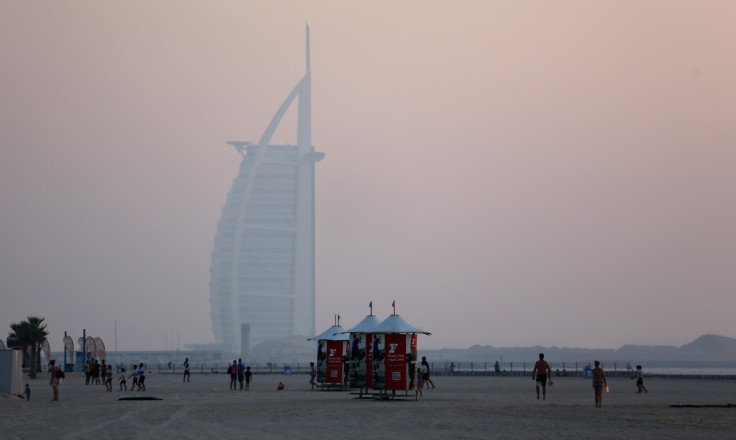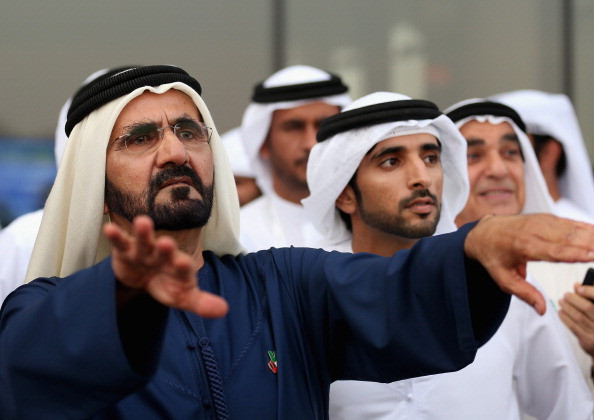The United Arab Emirates has peaked - Emiratis must now dare to dissent

The United Arab Emirates recently celebrated its 44th birthday with the usual celebrations, performances and rallies. The country certainly has much to be proud of – since its founding in 1971, it has achieved a near-miraculous rise in virtually all human development indicators.
Starting as an underdeveloped country with a small, mostly uneducated native population in a forgotten corner of the world, the UAE is now a global hub, a regional economic powerhouse and a popular tourist destination. The country ranks high in GDP per capita, infrastructure maturity and global competitiveness. It leads the Arab region in ease of doing business and leads the world in connectivity.
Empty wilderness was transformed into advanced, bustling metropolises. Rolling desert was transformed into some of the most valuable real estate in the region, if not the world. Man-made islands rose from the sea. But first and most importantly, a small nation of fishermen, traders, bedouins and peasants was transformed into one of the most prosperous, sophisticated and optimistic societies in the world. I watched the saga from the inside, having lived my entire life in the UAE, until I was extra-judicially forced into exile in 2014 (but that's another story...).
The UAE I grew up in was home to a proud, optimistic, dynamic society, but today much of its population are silenced into a resigned acquiescence, and wonder only privately where the country may be heading
The country is still riding high, with new mega projects announced (including plans for a mission to Mars). It still leads the Arab region in optimism and is the country most Arab youths aspire to live in. But behind the flashy news lurks a disturbing story.
The United Arab Emirates has peaked. The social, political and economic model that initially worked for the UAE so well carries within it the seeds of its own demise. The model of a rentier state in which citizens are a tiny privileged minority is internally coherent, but dangerously unsustainable, and is moving towards an inevitable moment of reckoning. The coming years, I predict, will see this distressing reality become far more urgently manifest.
When the UAE was founded, it had a population of less than 300,000. Today, it is home to over 10 million – and 88% of those are non-citizens. Officially, these non-citizens are labelled "temporary migrant workers", but many are in fact life-long residents. Since the 1970s, hundreds of thousands of Arab and Asian families moved to the country, contributing significantly to its success story, and founding most of its key development sectors. But the UAE did not provide a path to citizenship and decades later, a significant and growing demographic in the country is second and third-generation immigrants, who have never known another home. They are still referred to as "temporary". Notwithstanding their inferior legal status, these non-citizen natives are undeniably an integral part of the UAE's history and of its multicultural, modern society.
The government often refers to the country's striking population make-up as a "demographic imbalance" (or a "defect in demographic make-up") – but more than just being a defect, it's a solid trend. The UAE's rapid advancement in human development has predictably caused its family size to plummet – more education and more fulfilling careers for women came with a delayed age of first marriage and delayed child bearing. The UAE's birth rate has plummeted from nearly seven births per woman before the union, to 1.82 today (the replacement birth rate is 2.1). Local Emiratis, in short, cannot bridge the demographic gap through natural birth.
But this demographic defect is actually the cornerstone of some of the UAE's most important political and economic models. The local population is small enough to allow a generous and moderately sustainable cradle-to-grave welfare system – a system that would not scale up well if the population was much larger.
The vast majority of Emirati citizens work either directly for the government, or for semi-government corporations (99% of the private-sector workforce are non-citizens). For the vast majority of Emiratis, the government is – literally – their boss. The significance of this cannot be overstated – it sets the dynamic for the relationship between Emiratis and their government.

The model has been stable so far but can it continue? Studies project that by 2050, the UAE will be made up of only 4% citizens, and 96% non-citizens – which by then would include third and fourth-generation immigrants. The current regime cannot subsume such a big and diverse population as citizens without serious social, cultural, and political transformation; it cannot make up the difference via natural birth; it cannot "deport" nine-tenth of its population; and it cannot continue down the path of "demographic imbalance" without something or the other giving way. How sustainable is a country in which only 4% of the population are citizens?
What's most alarming about this picture, though, is that it is not debated in the UAE at all – the most serious problem is that nobody is talking about the problem. Since the start of the Arab Spring (whose fifth anniversary we just observed), the government's decision making seems to have been hijacked towards an autocratic, counter-revolutionary, nearly paranoid bent.
Its attention is committed outwards towards foreign intervention, and inwards towards shutting the space for debate and free speech. Without dissent, the country has no internal resistance to bad decision making. The ever-tighter sovereign leadership circle has chosen a familiar policy of unapologetic severity towards dissidents, coupled with the promotion of a closed nationalistic chauvinism, buoyed by the country's recent foreign military adventurism.
Today, in the UAE, dissent is punished as treason, and potential dissenters are mistrusted or pre-emptively expelled. The country I grew up in was home to a proud, optimistic, dynamic society but today, much of its population are silenced into a resigned acquiescence, and wonder only privately where the country may be heading. Many are oblivious to the threats, caught up in the rush of their daily lives. It's abnormal how normal life looks under these conditions.
Some non-citizen families have "emergency packs" ready in case a "deportation" order comes along; others are pondering emigration. But many are caught up in the rat race, trying to get ahead in one of the most dynamic economies and societies in the region. Others find solace in consumerism, or find escape in entertainment or in art and literature.
Poignantly enough, I could have never written this article had I not been summarily expelled from the UAE in April 2014, against the background of my Arab Spring activism. The government did not need to produce any charges against me – as a non-citizen native, I was "temporary" anyway. I am a product of the United Arab Emirates, and everything that I am was made there. I cannot find words to express how much I love it, how much I miss it, and how grateful I am to its society and its human saga for contributing to making me the man I am today.
The UAE to me was not a "port" to be "deported" from – it was my country, my home, the only home I ever knew. I worry for my first home – for the most successful and inspiring modern Arab story. The UAE is worth saving – but it would take the courage of dissent to make a difference before it's too late. If you really love your country, then dare to dissent for its sake. God bless the UAE.
Iyad El-Baghdadi is a career entrepreneur, writer, and Arab Spring activist. Follow him on Twitter: @iyad_elbaghdadi.
© Copyright IBTimes 2025. All rights reserved.






















